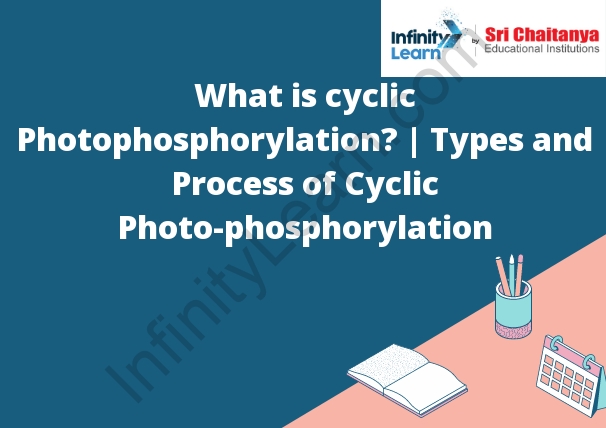Table of Contents
What is Cyclic Photophosphorylation?
Cyclic photophosphorylation is the process of converting light energy into chemical energy that can be used by plants to create glucose from carbon dioxide and water. Cyclic Photophosphorylation | Types and Process .

Function of Reaction Centers and Antenna Complexes
The reaction center is a molecule that harvests light energy and uses it to produce a chemical reaction. The antenna complex is a group of molecules that surrounds the reaction center and helps to collect light energy.
Process of Photophosphorylation
The process of photophosphorylation is the transfer of energy from sunlight to the organic molecules in photosynthesis.
Steps Involved :
1. Light energy is converted into chemical energy in the form of ATP.
2. This process occurs in the thylakoid membrane of the chloroplast.
3. Photosystem II absorb light.
4. This energy is then used to create a high-energy electron carrier called NADPH.
Details of Electron Transport Chain
These proteins are responsible for transferring electrons from NADH and FADH2 to O2, which produces ATP.
-NADH dehydrogenase: Converts NADH to NAD+
-Ubiquinone: Accepts electrons from NADH and transfers them to cytochrome c
-Cytochrome c: Converts energy from electrons to ATP
-Cytochrome oxidase: Converts oxygen to water and transfers electrons to ubiquinone
Brief About Cyclic Photophosphorylation
Cyclic photophosphorylation, also known as the light-driven proton pump, is a cellular process that uses light energy to produce ATP from ADP and inorganic phosphate. This process occurs in the thylakoid membranes of chloroplasts in photosynthesis.
Cyclic Photophosphorylation | Types and Process
Key Theories Important in the Study of Cyclic Photophosphorylation-
-Mitochondrial oxidative phosphorylation
-Photosynthesis
-Chemiosmosis
Cyclic Photophosphorylation | Types and Process.









